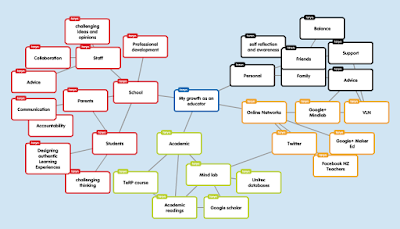Changes in Practice
A good educator will change and adapt their practice to suit the needs of their individual learners. They will also keep up with changes in the educational sector at a global level. They will continue their professional development actively, knowing that they need themselves to be life-long learners, in order to teach this to their students. They know that their students need to be 21st century learners in order to succeed in the world beyond school, therefore they adapted their teaching before 21st century skills even came up for debate. Most importantly, good educators reflect upon their teaching and their learning and they are self-aware. Self-awareness is the key to being a good educator, a great educator in fact. Over the last 8 weeks, I have reflected over different topics within the educational sector and I have found that it has not only consolidated my ideas and opinions but given me the keys to being able to describe my thoughts and views in a clearer way....
